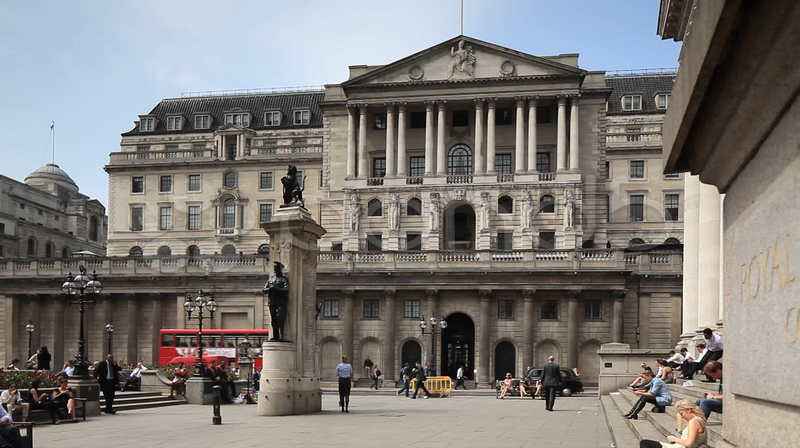BoE holds rate, sees stronger UK growth

The Bank of England on Thursday ramped up its UK economic growth forecasts for the next three years, despite the threat of Brexit storm clouds.
The bank voted unanimously in its February meeting to keep interest rates at the record low level of 0.25% and keep its quantitative easing (QE) purchase targets at up to £10 billion ($12.6 billion) for corporate bonds and £435 billion for U.K. government bonds.
Then, the British central bank lifted its 2017 economic growth prediction to 2.0% from a 1.4% forecast signalling the better-than expected performance of the UK economy since the June referendum.
The BOE still believes growth will slow as Brexit negotiations begin, predicting GDP growth of 1.6% in 2018 and 1.7% in 2019. That was up from growth estimates of 1.5% and 1.6% respectively.
The outlook was brighter because of the British government's planned increase in public spending as announced in November by finance minister Phillip Hammond, the BoE said. A solid global economy, recent strong gains for world stock markets and cheap borrowing would also boost growth, it added.
According to the minutes, "continued moderation in pay growth and higher import prices following sterling's depreciation are likely to mean materially weaker household real income growth over the coming years."
"As a consequence, real consumer spending is likely to slow," it added.
The BoE meanwhile predicted that UK annual inflation would hit 2.8% in the first half of 2018, before falling back to 2.4% over the forecast period. That was above the BoE's target level of about 2.0%.
Following Thursday's rate decision and economic forecasts, sterling fell against the dollar, which in turn pushed the London stock market higher on gains to heavyweight multi-nationals.
The British government is set to trigger Brexit by the end of March, which will spark a two-year process for the nation to leave the European Union.
British Prime Minister Theresa May's government on Thursday published its Brexit strategy after winning a first parliamentary vote on a bill that would empower her to start pulling Britain out of the bloc.

